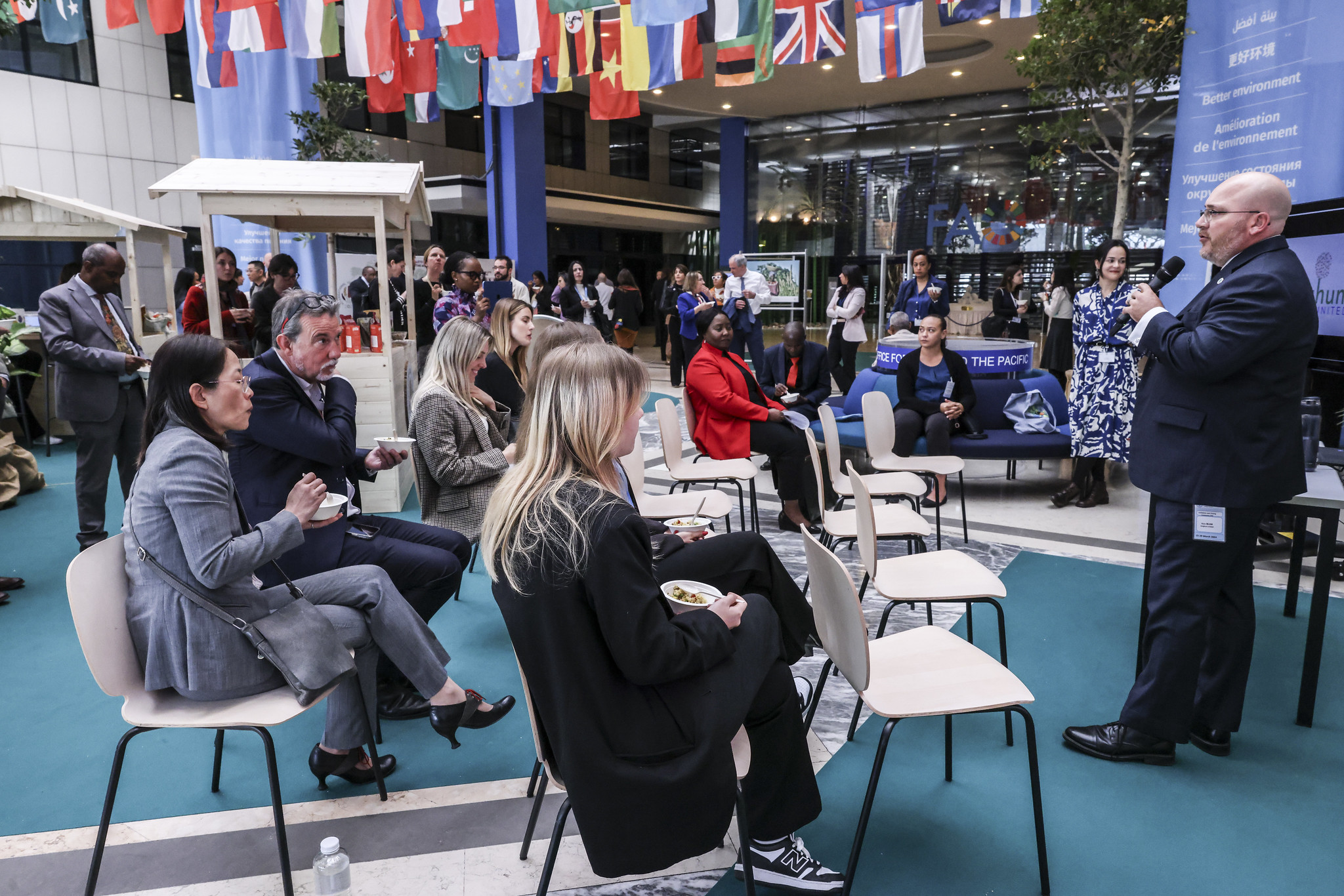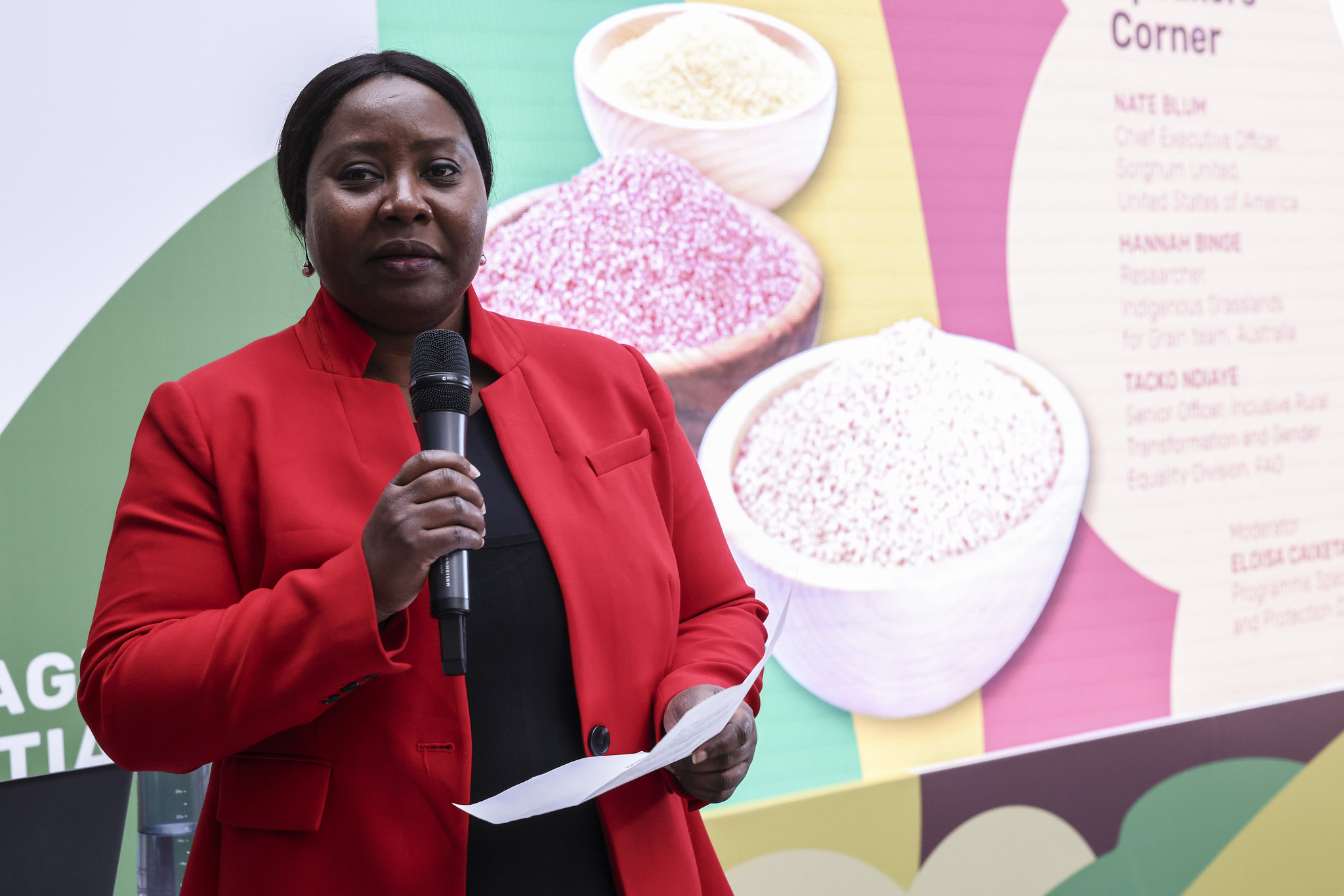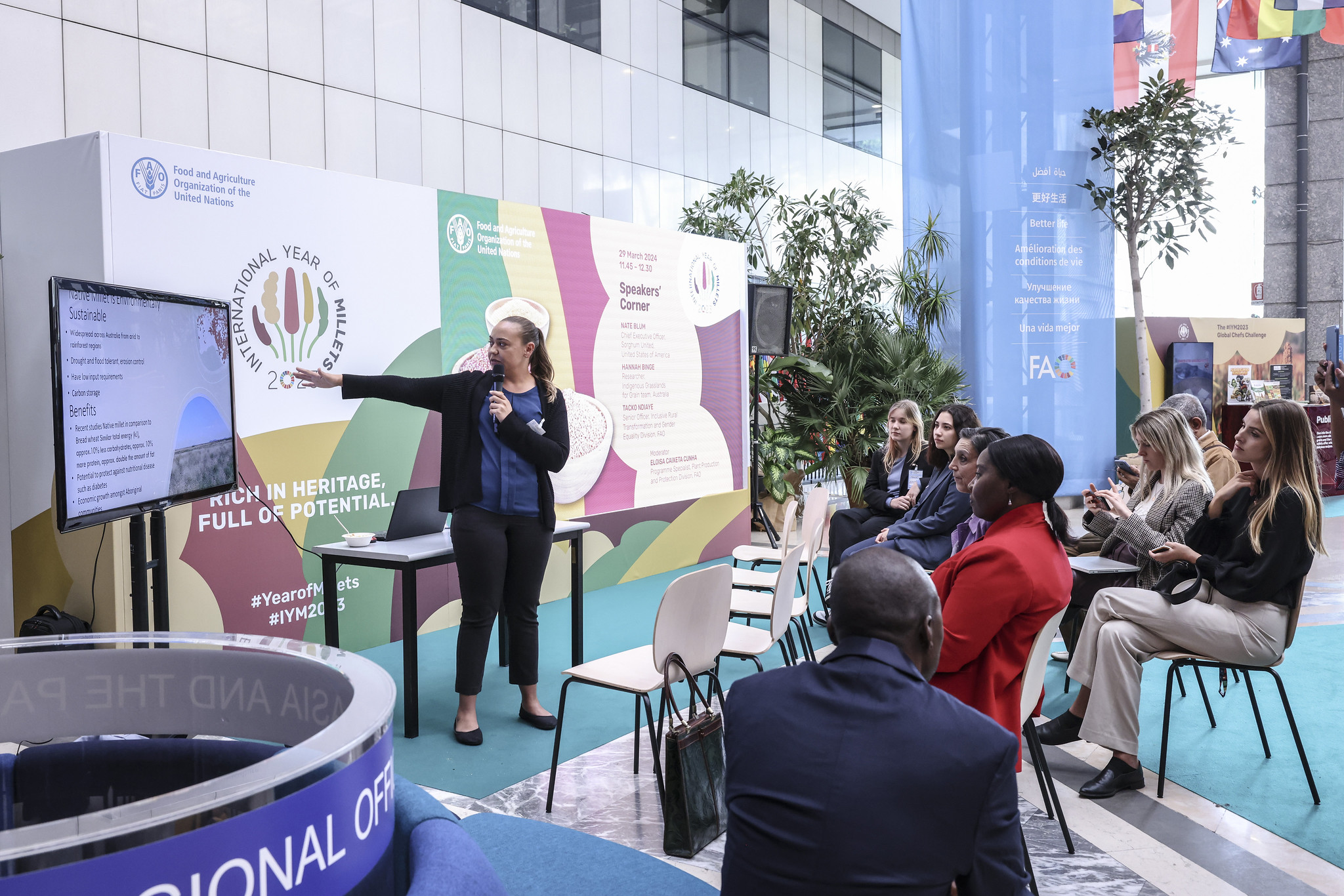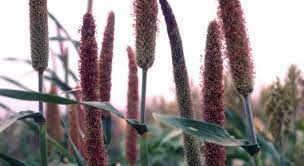IYM Closing Event: Inspiring and interactive discussions at the Speakers' corner

©All photos FAO/AlessandraBenedetti
In a vibrant culmination of the International Year of Millets, experts, policymakers, farmers, and enthusiasts from around the world gathered in Rome to exchange experiences, knowledge, and visions for the future of millets. The Closing Event, held amidst an atmosphere of enthusiasm, showcased the significance of millets around the world, especially in the drylands.
At the Speakers’ Corner within the exhibition at the Food and Agriculture Organization’s atrium, each speaker offered a unique perspective, enriching the discourse with anecdotes highlighting millets' impact on communities, economies, environment and agrifood systems.
Nate Blum, Chief Executive Officer of Sorghum United, emphasized the immense potential and future prospects for sorghum and allied small grains. He underscored the importance of consumer education, global value-chain connections, and capacity building to empower farmers and communities worldwide.
 |  |  |
Nate Blum, Chief Executive Officer of Sorghum United. | Tacko Ndiaye, Senior Officer in the FAO's Inclusive Rural Transformation and Gender Equality Division. | Hannah Binge, Research Assistant at the University of Sydney, Australia. |
The discussion continued with Hannah Binge, a Gamilaraay woman and Research Assistant at the University of Sydney, Australia. With a deep connection to her Indigenous roots, Binge advocated for the revitalization of local communities and the preservation of Indigenous knowledge through the promotion of millets.
Binge highlighted the story of the Indigenous Grassland for Grain Team, accessible through the International Year of Millets website and exhibition, showcasing innovative approaches to sustainable agriculture.
Adding a creative touch to the event, Tacko Ndiaye delivered a compelling poem, integrating art with millets. Tacko Ndiaye, Senior Officer in the FAO's Inclusive Rural Transformation and Gender Equality Division emphasized the vital role of millets for women, particularly in West Africa. Ndiaye addressed the challenges faced by women in the millets sector and talked about empowering solutions.
Eloisa Caixeta Cunha, programme specialist at FAO and the session's moderator, underscored how the insights of the speakers offered diverse perspectives, enriching the understanding of millets' multifaceted global significance.
As the International Year of Millets draws to a close, its legacy serves as a beacon of hope and empowerment for future generations, promising a sustainable and inclusive future for all.


